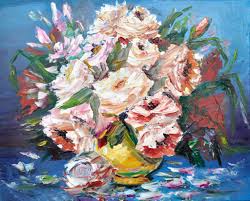palaces are most prevalent
HISTORY OF THE ORIGIN AND DEVELOPMENT OF STAINED-GLASS ART (part 2)
 Let us imagine for a moment the decoration of these choirs: painted walls and ceilings, glazed tiled stoves, patterned carpets and carved shutters … In the interiors of rich chambers, only windows could remain colorless spots. Stained-glass windows — multicolored glasses and mica plates assembled in the pattern — helped to solve the problem, complementing the atmosphere of the luxurious life of the then aristocracy. “The colored light that now penetrated through the glass and mica stained-glass windows created a special, joyful mood, made the interior cozy, complemented the beauty of the brightly-patterned decoration of the room.” Continue reading
Let us imagine for a moment the decoration of these choirs: painted walls and ceilings, glazed tiled stoves, patterned carpets and carved shutters … In the interiors of rich chambers, only windows could remain colorless spots. Stained-glass windows — multicolored glasses and mica plates assembled in the pattern — helped to solve the problem, complementing the atmosphere of the luxurious life of the then aristocracy. “The colored light that now penetrated through the glass and mica stained-glass windows created a special, joyful mood, made the interior cozy, complemented the beauty of the brightly-patterned decoration of the room.” Continue reading
harmony
selection
festivals
absolutely
movements
student
reproduction
available
combination
development
density
number
characteristic
province
subsequent
arrogance
community
technologies
different
workshop
educational
members
sepia
creation
troubles
performance
modest
soldiers
professional
sixties
transmitted
Museum
decorative
institution
returned
until
milestone
phenomenon
communal
distinguished
various
canvas
musician
watercolors
enthusiasm
artists
emergence
landscapes
background
manufacture
photography
technique
unshakable
traditions
landscape
contact
school
snowflakes
period
ideological
resistant
composition
minerals
again left
finally
documentary




